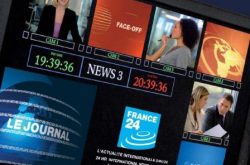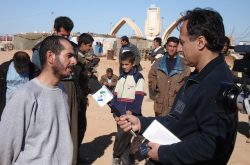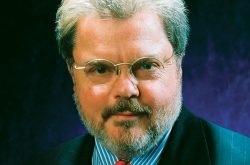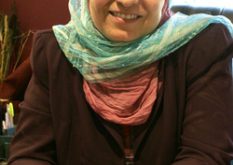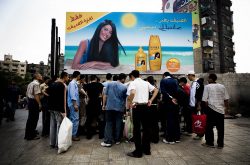Alan L. Heil Jr. documents the plethora of new public diplomacy channels broadcasting in Arabic, including France 24, Deutsche Welle, and Russia TV Today, arguing credibility will be crucial to success with audiences in an increasingly crowded market.
Read More »Arab World
Voice of America versus Radio Sawa in the Middle East: A Personal Perspective
By scrapping Voice of America in the Middle East, the US has both undercut its own public diplomacy interests and the interests of listeners in the region itself, argues Laurie Kassman.
Read More »Alhurra TV and Radio Sawa: Advancing freedom in the Arab World
That Arab viewers accept this U.S. government-funded station as credible is a great victory, especially after being on the air little more than three years. That some Arab viewers find the assertions of advocates for freedom jarring to their ears is a price we will gladly pay, argues outgoing Broadcasting Board of Governors Chairman Kenneth Y. Tomlinson.
Read More »America’s Voice as it could have been
The inability of Sawa and Alhurra to speak with critical populations in the Middle East and their emphasis on the most trivial of American pop culture have marginalized the United States and prevented a reasoned and substantive conversation between the United States and the Arab world, says former VOA Director Myrna Whitworth.
Read More »Radio Sawa: America’s new adventure in radio broadcasting
In this content analysis of U.S. Public Diplomacy radio station Radio Sawa, veteran Middle East broadcasting specialist Sam Hilmy argues that the pop-music driven channel is not meeting its commitment to provide “accurate, timely and relevant news about the Middle East, the world and the United States.”
Read More »Sexual Healing: How big is Kalaam Kibeer?
Al Mehwar’s Heba Kotb is not just any sexologist; she’s the Arab world’s first celebrity tele-sexologist, and a devout Muslim sexologist to boot. So how does the Doctor of Sex reconcile her performance on satellite TV discussing sexual pleasure with her strictly Islamic principles? Anna Swank investigates.
Read More »Does the veiled look sell? Egyptian advertisers grapple with the hijab
It seems obvious that for an ad to be effective it must represent a prettier, cleaner, better version of reality and yet at the same time feel natural. So why is the hijab such a sensitive topic in Egyptian advertising? Contributing Editor Sharon Otterman investigates, and finds a puzzling mismatch between the hijab in TV ads and the hijab on the street.
Read More »Al Arabiya Producer Nabil Kassem: Arab media are “living in denial” over Darfur
Two years on, Nabil Kassem is still profoundly affected by his experiences in Sudan. What he witnessed there, and recorded in a film he made for Al Arabiya, were scenes of unspeakable brutality and untold suffering, scenes he thought would surely wake up an Arab public all too willing to let Darfur pass by. But 'Jihad on Horseback' never made it across the airwaves. In this highly charged interview with Lawrence Pintak, Kassem speaks of how Sudanese President Omar Al-Bashir prevented the broadcast of perhaps the most provocative documentary film ever made by an Arab director.
Read More »British Middle East representative, Jon Wilks: Fluent Arabic spokesmen can “promote a freer media in the Arab World”
Recently posted at the British embassy in Dubai, Jon Wilks is no newcomer to the Middle East. Having served across the region over a number of years, the fluent Arabic speaker has been brought in to explain British government policy to the Arab World. Speaking to Arab Media & Society Managing Editor George Weyman, Wilks talks about his role, revealing his mixed views on Arab-channel interviews and how he avoids discussing conspiracy theories.
Read More »Darfur: Covering the “forgotten” story
There is no issue in Arab journalism today that is more controversial than how the region’s media cover Darfur. It is the hot-button issue in the Arab newsroom not because of the physical danger but because the issue bores right to the heart of the mission of Arab journalism and the self-identity of those who practice it, writes Publisher and Co-Editor Lawrence Pintak.
Read More » Arab Media & Society The Arab Media Hub
Arab Media & Society The Arab Media Hub
